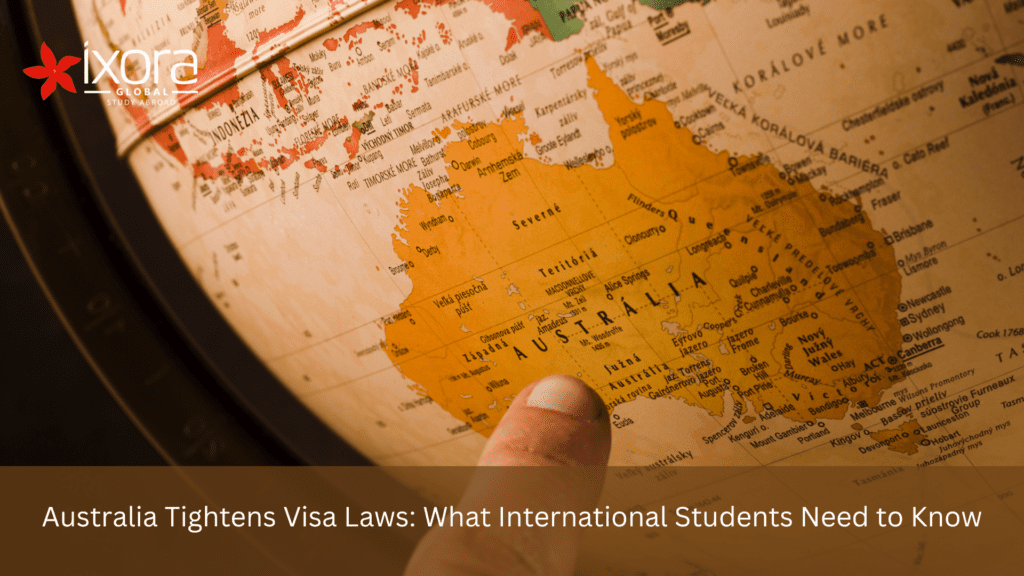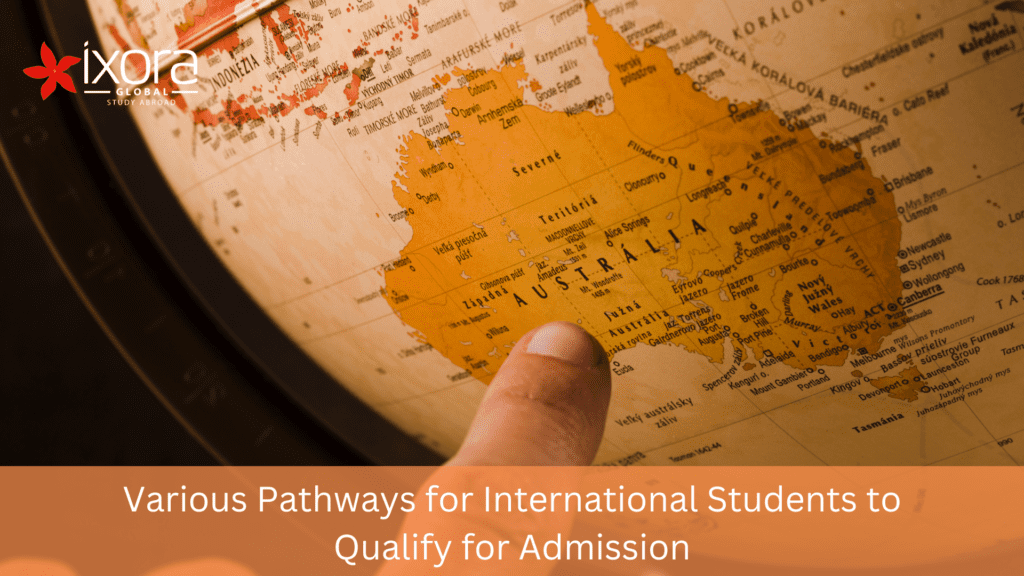Scholarships That Make Studying in Australia Possible

Studying in Australia with a scholarship can be a game-changer. It makes education more affordable by covering tuition and living costs while giving you access to top-notch universities. You’ll earn a degree recognized worldwide, boosting your career prospects. Plus, you’ll experience diverse cultures, build a global network, and gain access to valuable resources and support. A scholarship also looks great on your CV, making you stand out to future employers and academic institutions.
How can you study in Australia with scholarships?
In Australia, international students can get financial help from the government, companies, universities, and private organizations. Scholarships are available based on merit, need, or specific courses, with amounts ranging from $2,000 to full tuition coverage. Doctoral degrees are often fully funded. Before applying, be sure to check the requirements and deadlines for each scholarship.
What are the Scholarship Requirements?
Getting scholarships isn’t easy, but with a good plan, you can succeed. Here are some tips to help you get an Australian scholarship:
- Engage with Your Community: Many scholarships reward active community participation, not just academic achievement. Include activities like volunteering or club involvement in your application.
- Seek Assistance When Needed: Ensure your application is error-free and well-presented. Learn how to write a persuasive scholarship essay. If English isn’t your first language, ask someone fluent to proofread your application. Consider free virtual consultations from education consultants like Aussizz Group for extra help.
- Meet All Requirements: Follow the application checklist carefully. Provide all necessary information and documents, and respect word counts and deadlines.
- Apply for Multiple Scholarships: You can apply for many scholarships at once. Explore different options to increase your chances. Don’t limit yourself to just one college or organization.
If student loans seem too expensive, remember that fully-funded scholarships can cover your tuition fees. Check with your university for other scholarship opportunities and learn how to manage your tuition fees as an international student. Also, consider using services like Amber to find student accommodation in Australia.
How can Indian students receive a free education in Australia?
Studying in Australia for free isn’t really possible, but many scholarships for Indian students cover tuition fees, and some even cover living or travel expenses. Research programs often offer full scholarships that include both tuition and living costs. The amount and type of scholarship vary by institution, and competition is tough. To improve your chances, start applying 8-12 months before your preferred intake.
Leading Scholarships for International Students in Australia
- Australia Awards Scholarships:
Fully funded scholarships for students from developing countries, especially the Indo-Pacific region, covering 100% tuition at participating Australian institutions.
- Type: Government funded
- Eligibility:
- Not a permanent resident of Australia or New Zealand
- Citizen or resident of a participating country (e.g., India, Bangladesh)
- 18 years old by February 1st of the scholarship year
- Meet English language requirements
- Qualify for the chosen Australian university course
- Meet Australian visa requirements
- Not previously received an Australia Award unless certain conditions are met
- Destination Australia Scholarships:
Government-funded scholarships worth up to AU$ 15,000 a year for international students at eligible institutions.
- Type: Government funded
- Eligibility:
- International student
- Hold a student visa for the scholarship duration
- Commencing student
- Full offer to study in an eligible program
- Australian Government Research Training Program (RTP):
Scholarships for postgraduate research degrees, covering tuition and other expenses, are administered by individual universities.
- Type: Government funded
- Eligibility:
- Enrolled in a postgraduate research course
- Strong academic record and research potential
- An unconditional offer of admission for a PhD or master’s by research program
- University of Sydney International Scholarships (USydIS):
Scholarships for postgraduate research students at the University of Sydney, valued at AU$41,109 per year for up to three years, cover tuition and living costs.
- Type: University funded
- Eligibility:
- International student in a Higher Degree by Research (HDR) at the University of Sydney
- Not received another scholarship in the past two years, with some exceptions
- Not hold a research qualification equivalent to the degree of choice
- Not applied for this scholarship more than three times in the last five years
- Macquarie University Scholarships:
Partial tuition scholarships for undergraduate and graduate students at Macquarie University’s North Ryde campus.
- Type: University funded
- Eligibility:
- Meet academic requirements for an undergraduate or postgraduate degree at Macquarie University
- Achieve a WAM of at least 65 for postgraduate or 85 for undergraduate
- Full-time on-campus student starting in 2024
- Not deferred the course start date
- Not received another Macquarie University scholarship
- Not a citizen or permanent resident of Australia or New Zealand
- Griffith Remarkable Scholarship:
Scholarships cover 50% of tuition for outstanding students in undergraduate and postgraduate programs at Griffith University.
- Type: University funded
- Eligibility:
- Citizen of any country other than Australia and New Zealand
- Minimum GPA of 5.5 on a 7-point scale
- Meet academic and English language requirements
- Enrolled in a full-time course starting in 2024
- Applied to Griffith University before the scholarship deadline
- Melbourne Research Scholarships (MRS):
Scholarships for research students at the University of Melbourne, covering tuition, health insurance, living allowance, and relocation assistance.
- Type: University funded
- Eligibility:
- Applied for and met the entry requirements for a Master of Research or Doctoral degree
- Enrolled in a research degree at the University of Melbourne
- Adelaide Global Excellence Scholarships:
Scholarships for high-achieving international students starting undergraduate or postgraduate study at the University of Adelaide, covering 50% of tuition fees.
- Type: University funded
- Eligibility:
- Commencing international student at the University of Adelaide
- Enrolled in an undergraduate or postgraduate course
- Citizen of any country other than Australia and New Zealand
- Monash University Scholarships:
This scholarship provides an AU$ 10,000 annual tuition fee waiver for undergraduate and graduate students with outstanding academics at Monash University.
- Type: University funded
- Eligibility:
- Enrolled in a Bachelor’s or Master’s degree program at Monash University
- Meet GRC qualifications
- Strong academic record, research output, and prior research experience
- Not previously held a Postgraduate Research Award for more than six months
- Swinburne International Excellence Scholarship:
Scholarships cover 75% of tuition for undergraduate and postgraduate students at Swinburne University.
- Type: University funded
- Eligibility:
- Citizen of any country other than Australia and New Zealand
- Not currently enrolled at Swinburne (except ELICOS program)
- Not holding other Swinburne scholarships
- Academic result of at least 60% GPA
- Queensland University Law Scholarships:
Partially funded scholarships covering 25-50% of tuition fees for master’s degree students at Queensland University.
- Type: University funded
- Eligibility:
- Applied as an international student at the University of Queensland
- Submitted application in the prescribed format before the deadline
- Not holding another similar scholarship
- Minimum GPA of 4.5 in the course
- International Research Training Program Scholarship (IRTP):
Scholarships cover tuition, health coverage, and a living stipend of AU$ 32,500 per year for new research degree students.
- Type: University funded
- Eligibility:
- International student with a student visa
- Meet admission requirements for research degrees
- Living stipend scholarship or funding for living expenses
- Nominated by the faculty
- Not holding another tuition scholarship
- Bond University Scholarships:
Fully funded scholarships for international undergraduate students at Bond University, covering 50% of tuition for some students.
- Type: University funded
- Eligibility:
- Offer to commence an undergraduate degree at Bond University
- Currently residing outside of Australia
- Apply by the deadline
- Not commenced studies at Bond University
- Tasmania Graduate Research Scholarship (TGRS):
Scholarships for research students at the University of Tasmania provide AU$32,192 per year and cover tuition fees for PhD (3.5 years) and Masters (2 years) students.
- Type: University funded
- Eligibility:
- Meet requirements for a full-time master’s or doctoral degree at the University of Tasmania
- Not receiving an award or salary covering more than 75% of the stipend
- La Trobe University Scholarships: Scholarships for international students at La Trobe University, offering AU$15,000 per year for up to four years.
- Type: University funded
- Eligibility:
- Citizen of any country other than Australia and New Zealand
- Apply for undergraduate or postgraduate programs at specified La Trobe campuses
- New international student for 2024 intakes
- Full-fee-paying student
- Program from LTIS List of eligible courses
- Deakin International Scholarship: Scholarships cover 25% of tuition fees for international students starting at Deakin University.
- Type: University funded
- Eligibility:
- Demonstrated 65% average (or comparable) in previous studies
- Prospective international student at Deakin University pursuing a coursework degree
Scholarships That Make Studying in Australia Possible Read More »









